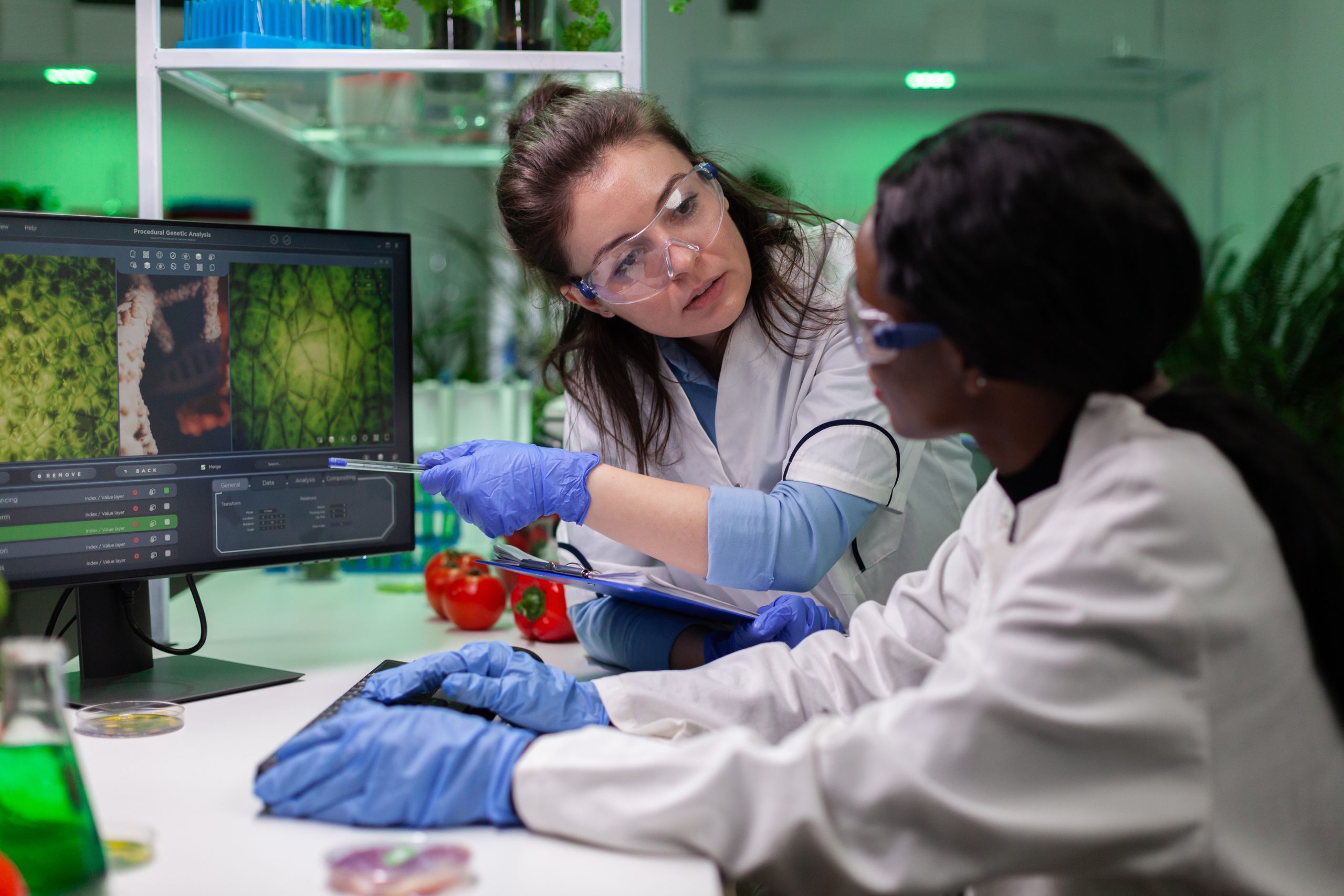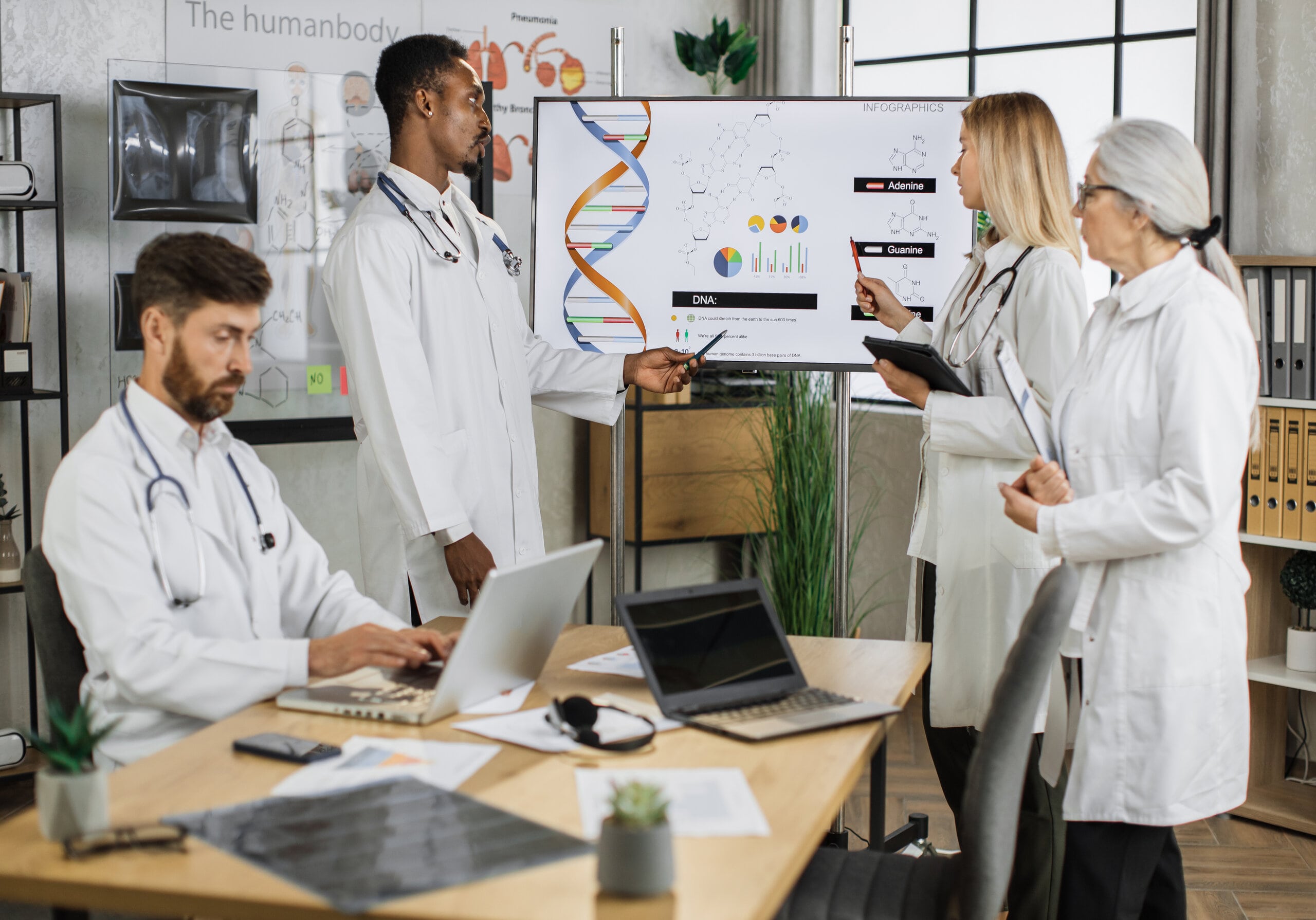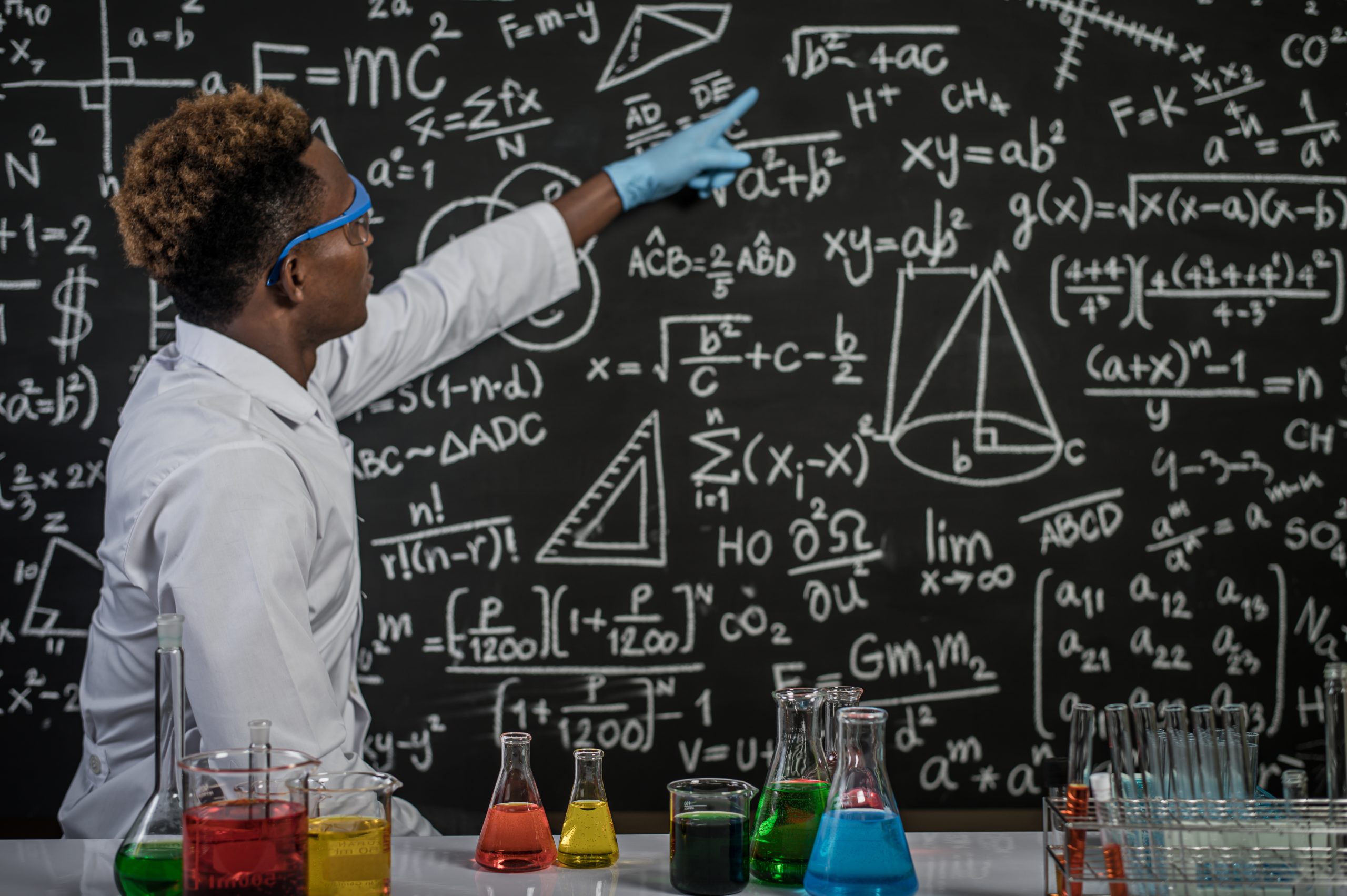Welcome to Open Learning College – Change your career, Increase your salary, and Improve your life.
 Course Overview
Course Overview
Embark on a transformative learning journey with the UK’s most innovative home study provider, offering courses designed to unlock your true potential and facilitate the career change you desire. Access our distance learning courses directly from anywhere, anytime, and acquire industry-recognised Professional Qualifications essential for advancing in your career.
Specifically, explore the flexible and convenient Biology (Level 3) course, an ideal way to gain a diploma qualification. Whether you aim for further education, improved job prospects, or expanded knowledge, this comprehensive course allows you to prepare thoroughly for exams or careers through home study. Plus, it’s structured to be accessible and beneficial even if you have no prior knowledge in Biology.
The course on Biology offers a comprehensive exploration of life sciences, catering to students who seek a profound understanding of the intricate mechanisms governing human life and the natural world. As an expert in this field, I can attest to the significance of biology as the cornerstone of scientific inquiry, providing invaluable insights into the fundamental principles that govern living organisms. This course adopts a multifaceted approach, delving into both theoretical concepts and practical applications, thereby offering students a holistic perspective on biology and its relevance to everyday life.
At its core, this course serves as a gateway to unravelling the mysteries of life, from the origins of existence to the complexities of human anatomy and physiology. By elucidating general concepts, laws, theories, and models of biology, students gain a solid foundation upon which to build their understanding of biological phenomena. Moreover, the practical application of biology to real-world scenarios enhances students’ appreciation for the vital role that biological principles play in shaping our daily experiences, from nutrition and health to environmental sustainability.
One of the distinctive features of this course is its contextual approach, which examines the intricate relationship between humans and their environment. Through an exploration of evolutionary biology, students delve into the origins of life itself, tracing the journey from simple microorganisms to the diverse array of plants, animals, and ecosystems that populate the planet. By unravelling the mysteries of evolution, students gain insight into the interconnectedness of all living organisms and the profound impact of environmental factors on biological processes.
Furthermore, this course prioritises hands-on learning experiences, with activities and practical experiments designed to reinforce biological concepts and foster critical thinking skills. By engaging in experiments that can be conducted at home, students not only deepen their understanding of biology but also develop essential scientific skills such as observation, experimentation, and data analysis. Overall, this course offers a rich and immersive learning experience that empowers students to appreciate the wonders of life and embark on a journey of scientific discovery.
 Course Key Topics
Course Key Topics
the Biology (Level 3) course is divided into 10 modules.
Module 1: Lifestyle, Health and Risk Part 1
The course starts with the basic building blocks of life from the basic atoms to the complex molecules such as carbohydrates, proteins and fats. What is needed to sustain life, where did oxygen come from, and what properties of water help sustain life? How simple molecules react, combine into structures and complex substances such as amino acids which then build the very many different proteins, each having their particular characteristic and use, e.g. enzymes and the muscle that helps animals move.
Module 2: Lifestyle, Health and Risk Part 2
The usefulness of the more complex molecules, e.g. to our diet is looked at following on from module 1. We start by looking at what constitutes a healthy diet and what tests there are for the different food groups. How is food processed, broken up used and controlled within the body? A range of systems and processes maintain sufficient energy, water, oxygen and manage the waste within our body. We study transport e.g. of food and oxygen, and how the heart regulates the flow throughout the body. What happens if our diet and life-style is unhealthy, the illness, disorders and diseases that occur as a result are examined? The module ends with to collect and analyse data, statistics and demonstrating their application and purpose to Biology.
Module 3: Genes and Health
Once cells are formed what processes do they use to take in food and oxygen, and rid waste? How did cells differentiate and form complex organelles, and how do these then function within the body to provide humans with life processes such as breathing, transport and homeostasis? Are the processes within simple celled organisms and the organs within our body or that of other animals like fish which have gills rather than lungs similar or vastly different? How cells differentiate, the role of enzymes, cell division and reproduction is addressed by looking at DNA and genetic codes, and advances in recognising gene abnormalities.
Module 4: The Voice of the Genome
The fourth module continues with the themes of genes and how they differ in various living organisms. How cells divide asexually through mitosis and sexually through meiosis is covered in detail. The structure of the cell (which is not widely different to single-celled organisms) and the organelles within each are studied to see how they function, their role in replication, and how they work together to form multi-celled structures like tissues. The study of plant and human reproductive organs continues this theme as they position the different forms of cellular reproduction in the formation of egg (ovum) and sperm/male cells. Evolution of genetics is also covered to show various related discoveries and theories.
Module 5: Biodiversity and Natural Resources
The transport system of plants, although different to animals, is complex and efficient. Water, nutrient solutes and energy from the sun are harnessed, taken in and transported to where they are needed. Plants and other organisms developed and were selected over others is theorised by Darwin’s natural selection, and this is discussed leading to how we use plants both as food and in medicinal treatment. The final topic that ends this module teaches about how to group and classify.
Module 6: The Wild
The structure and functions within and of plants is reviewed in order to cover topics such as transport and the production of energy using chlorophyll within chloroplasts. Various cycles such as the Carbon, Nitrogen and Calvin cycle, food chains and food webs are addressed to show the wider application of nutrients, energy, food and water in the environment and diverse Ecosystems, and the role of plants. Problems of pollutants, harmful gases and the impact of humans to climate change and global warming, the future of these with regard to sustainability and their impact on Earth completes this topic.
Module 7: Infection, Immunity and Forensics
Several pathogens affecting and causing illness, disease or having use in the production of useful products such as antibiotics, bread, yoghurt and beer, for example, are Microbes, Bacteria and Virus. Their structure, how they function, reproduce, attack or have effect, how they are bred, and how we use them or protect against their bad/good effects helps us to understand precisely how and in what way they work. In order to study Microbes, Bacteria and Virus, they needed to be investigated and researched, so how to do this both in the laboratory or at home is shown.
Module8: Infectious Disease
Diseases are caused by infectious (e.g. the common cold, TB and HIV/AIDs), genetic (e.g. muscular dystrophy, cystic fibrosis and haemophilia), dietary-deficiency (e.g. scurvy and rickets), environmental (e.g. those caused by non-living factors in the environment such as Asbestosis, CJD, Skin cancer) and ageing diseases (e.g. Dementia, eye cataracts and arthritis) diseases. The focus here will be on infectious diseases, and we look at what causes them, symptoms, their spread and how the diseases can be controlled. The array of diseases investigated includes e.g. Influenza, Malaria and HIV/ Aids. The module would be incomplete unless methods by which humans try and should try to prevent infection, and how – using the Immune system, immunity and antibodies, immunisation and genetic modification to carry out this function in the body is also covered. How DNA and genes research is conducted and the importance of the findings in understanding disease prevention, finding cures and even manipulating genetic material to produce medicines, disease-resistant crops and treatments is studied. The topic concludes by looking at the changes in mammalian death and decomposition, often involving various microbes, and how the signs of each stage involved in death is useful in studies such as forensic science and entomology.
Module 9: Energy and Exercise
Anatomy of bones and the skeleton, and all the systems involved in movement such as muscles, ligaments and tendons starts this topic. Each system is complex having specialised elements such as the heart moves using cardiac muscle, yet the movement of the abdomen involves a totally different set and form of muscles. In order to exercise, the organisation of the transport, respiration, hormonal, skeletal and musculature systems, and how they are coordinated is covered in depth. Issues such as how to get maximum energy to enhance performance, the use of drugs and chemicals is addressed. The final section covers the various systems and how they are controlled by the brain and endocrine system. This occurs through and the investigation of homeostasis, the regulation of the internal conditions in the body through an equilibrium involving feedback controls using senses, hormones and body systems reacting to external stimuli/ conditions.
Module 10: Grey Matter
The final module reinforces and summarises how humans can respond to their external environment and take control by using the nervous (brain and nerve cord) and endocrine (hormonal) systems. The nervous system is made up of a network of neurones controlled by the brain and the spinal cord. How single nerves work and how messages are passed from one point to the central coordinating centres like the brain is discussed. Different drugs work and affect the functioning of the nervous system, so each drug, how it works and its impact is studied. The organs involved in our senses and how they respond to the external environment, and how they connect to the nervous and endocrine system is studied. The history and theory of evolution, natural selection leads to the way the wider external environment containing virus, plant and animal kingdom are grouped and classified. Where do humans fit into this environment? Is the way they are nurtured stronger than where they are positioned, and how can this be studied and assessed? The course ends with a brief discussion of the impact of nature versus nurture on human development.
(Please click on the curriculum tab above to see a detailed view of each module)
Course Content
Biology (Level 3) – FREE Starter Pack
How to…. (a series of explainer videos)
Module 1 – Lifestyle, Health and Risk Part 1
Module 2 – Lifestyle, Health and Risk Part 2
Module 3 – Genes and Health
Module 4 – The Voice of the Genome
Module 5 – Biodiversity and Natural Resources
Module 6 – The Wild
Module 7 – Infection, Immunity and Forensics
Module 8 – Infectious Disease
Module 9 – Energy and Exercise
Module 10 – Grey Matter
Course Resources
Final Exam
College Announcements
🔍 Delve into the Intriguing World of Biology with £50 OFF the Biology Course Level 3! 🌿🔬
Ready to immerse yourself in the fascinating realm of biology? For a limited time only, we're excited to offer you an exclusive discount of £50 off our Biology Course Level 3!
Use code BIOLOGY50 at checkout before the month ends!
👣 Why Choose Our Biology Course
The Biology Course Level 3, brought to you by Open Learning College, is your ticket to a comprehensive exploration of life sciences. This enriching course delves into 10 captivating modules, covering topics ranging from the basic building blocks of life to the intricate mechanisms of organisms and ecosystems. Gain insights into genetics, biodiversity, infection, immunity, energy, and much more as you embark on this enlightening journey through the world of biology.
💪 What Makes Our Course Stand Out
Flexibility: Customize your learning experience to suit your schedule, with round-the-clock access to course materials.
Expert Guidance: Benefit from the support and expertise of our dedicated tutors, who will guide you every step of the way.
Practical Applications: Acquire practical skills and real-world insights that are essential for pursuing careers in biology, medicine, ecology, and beyond.
Don't miss out on this incredible opportunity to delve into the wonders of biology at a discounted rate! Enroll now, use code BIOLOGY50* at checkout, and kickstart your journey towards a deeper understanding of life sciences. 🌱📖
*Please note that this discount code cannot be combined with any other offer.









 Get Social!
Get Social!











David Nguyen